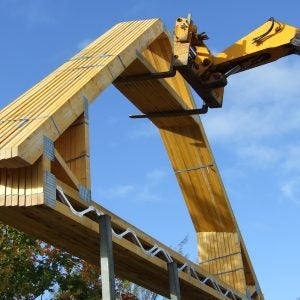Forestry Commission statistics showed a surge in the price of standing timber (trees not yet harvested) – up by 28.2% from March 2017 to March 2018.
The price of softwood sawlogs went up by 20.8% in the six months to March 2018. Confor, which represents 1,500 forestry and wood-using businesses, said the price spikes reflected a booming wood processing industry and highlighted the need to increase tree planting significantly – to deliver more timber into markets and avoid reliance on imports.
It also said there were real opportunities for farmers to diversify and plant a portion of their land with trees to create a more sustainable business model after Brexit.
"We are already the world's second largest net importer of timber after China but the UK Government is still missing its modest tree planting targets," said Andrew Heald, Confor’s technical director.
"Confor is working with members and with governments across the UK to identify ways to bring more timber to market. It is vital that the major growers, including the Forestry Commission and Natural Resources Wales, maximise all opportunities to do this."
Mr Heald said prices were even higher in some regional hotspots, including Wales and Dumfries & Galloway in southern Scotland – and called for a long-term approach to forestry to secure future supply.
“This is a complex issue for the industry,” he said. “While high timber prices are good news for the UK’s forest owners, these are tough times for sawmillers who are also having to compete with cheap imports of sawn timber.
A steady supply of round timber is essential for sawmillers and processors to plan their operations and to have the confidence to continue to invest in their mills and factories."






